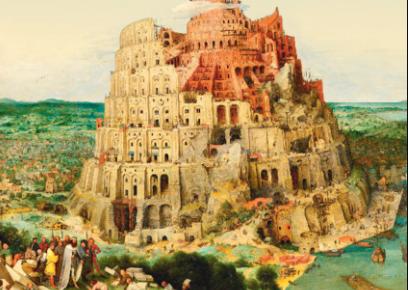
Russia’s invasion of Ukraine captivates our attention, while we fear that worse is coming. China threatens Taiwan, Iran almost certainly will become a nuclear power before long. The last omnibus funding bill passed by the U.S. Congress – maybe the last for some time, as the House since has flipped against the Biden Administration – left the European Union out of its “friendshoring” provisions, creating a new fissure in trans-Atlantic relations. Climate change, nationalist populism, gross inequalities in wealth and social status, new pandemics, and the pollution of cyberspace terrify us while also making international cooperation based on law all the harder. How did we get to this dark place and can we get out of it?
With all these present and gathering threats, international law is the canary in the coal mine. The assaults on international regimes in this century, from wars to financial crises to Brexit and more looming cracks in the European Union to U.S. populism and isolationism to China’s aggressive revisionism within the international order, manifest as breakdowns of international law. No sensible person, however, can see the breakdown as causing the assaults; the causation arrow runs the other way.
In my new book, I argue that the knowledge economy lies at the heart of our problems. Over the last half-century or so, value added through the application and creation of knowledge has come to dominate our economic lives. This transformation in the way the world makes and sells things has done wonders, lifting hundreds of millions of people out of dire poverty, giving us the vaccines, medicines, and remote connectivity that allow us to go on with our lives during a terrible pandemic, and creating many shiny new toys that we treasure. But it also spawns shocking inequality and devours social trust, what economists call social capital.
As economists have understood since the 1980s, the knowledge economy both scales and clusters. By scaling, they mean that it creates ever greater value as it activity level goes up, whether of goods (think smartphones or computer farms) or services (think the Cloud or artificial intelligence). That leads to concentration of production, wealth and, perhaps, political clout. Scaling rests on a well understood property of knowledge as an economic good, that it costs a lot to make but not much to transfer.
Locality occurs because the transmission of knowledge among those most able to exploit it works best with direct and extended contacts. As most educators have learned over the last three years, remote learning is not as good as face-to-face. Hence the rise of several dozen great global cities around the world, most ringed by clapped-out heartlands, places of social dysfunction and, as economists Anne Case and Angus Deaton document so well, deaths of despair.
It is the knowledge economy that makes globalization so attractive, by increasing the value of trans-border transactions and movements of people and capital, and drives the growing commitment to the social and moral centering of the individual, free of shackles based on race, ethnicity, sex, or gender. We live in a world that demands the best knowledge workers, a meritocracy that abhors needless impediments to opportunities to thrive. And for those who do not thrive in this new world, these most visible features of the knowledge economy become the enemy.
Combining scaling, locality, and their consequences, we find a world that increasingly separates society into winners and losers, with growing geographical distance as well as social separation. These forces feed a politics of conflict, distrust, and vanishing common ground. The confidence in the future that makes cooperation based on international law possible goes out the window. This explains the many setbacks suffered by international law in recent years, whether curtailing free movement of people, products, businesses, and capital, undermining protection of human rights, or dispensing with confidence building and stronger guardrails against violence and oppression.
These forces also are at work in the pollution of cyberspace. At the dawn of this century, people reasonably could believe that the new technologies could enable oppressed people to rise up and thwart traditional instruments of social and political control. Hence the color revolutions. But since the collapse of the Arab Spring, the evidence has pointed in the opposite direction: Tyrants have greater powers of surveillance and better capacities to sow discord through disinformation. Both criminals and states, sometimes hand in glove, use cyber powers to harm people directly when they are not tearing up the social fabric.
My book mostly looks at the problems and what lies behind them, an exercise in pathology and diagnosis rather than prescription and cure. It does argue, however, that the international community needs to come to terms with the unwinding of the grand top-down projects of the nineties, the transformation of the European Communities into the European Union, the GATT into the WTO, and the like, as well as the hope that liberal internationalism and its peace agenda could replace the balance of international terror as a source of stability in the world. It does not, however, require us to give up on international law. I describe the successes in international cooperation over the last fifty years achieved by defined, bottom-up projects, whether in the world economy or cyberspace, led by a handful of states acting as entrepreneurs for international reform. These include international competition policy, the creation of the international antibribery regime, and increasingly effective measures to combat fraud in the international financial system. We can build on these examples, whether constraining state aggression in cyberspace or, working within the Paris Agreement, to build trust and cooperation in the struggle to contain climate change. We should be worried by the dark place in which we find ourselves, but not paralyzed by fear.
Latest Comments
Have your say!